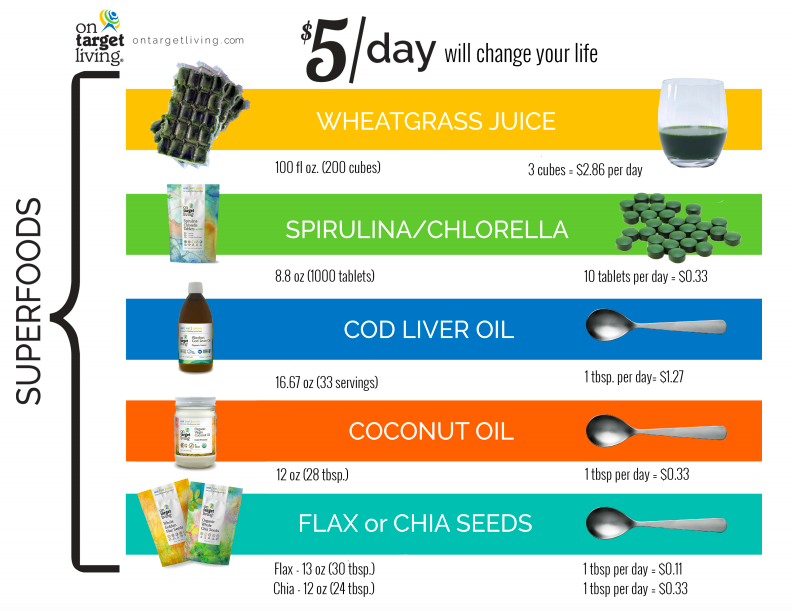
How to Find Happiness
January 7, 2017
Essential Oils 101
January 7, 2017It seems the rates of inflammatory and autoimmune associated issues have continued to rise year after year. Did you know Americans make 104 million visits to the doctor every year due to poor digestion? Inflammatory bowel disorders, including ulcerative colitis and Crohn’s disease, cost $1.7 billion every year, and doctors write millions of prescriptions to combat the related symptoms.
Some of these newly popular issues were not even on the radar screen hundreds of years ago. So, what has changed and what can we do about it? Let’s take a look at some of the most common inflammatory related diseases.
What You Need To Know About These Popular Inflammatory and Autoimmune Issues
IBS
Irritable bowel syndrome (IBS) is a common disorder that affects the large intestine (colon). Irritable bowel syndrome commonly causes cramping, abdominal pain, bloating, gas, diarrhea and constipation. Some people can control their symptoms by managing diet, lifestyle and stress. However, chronic IBS can lead to more severe conditions like inflammatory and digestive related diseases.
IBD
Inflammatory bowel disease (IBD) is a broad term that describes conditions with chronic or recurring immune response and inflammation of the gastrointestinal tract. The GI tract is responsible for digestion of food, absorption of nutrients, and elimination of waste. Inflammation impairs the ability of affected GI organs to function properly, leading to symptoms such as persistent diarrhea, abdominal pain, cramping, rectal bleeding, and fatigue.
The two most common inflammatory bowel diseases are Ulcerative Colitis and Crohn’s disease. Both illnesses are characterized by an abnormal response to the body’s immune system. In Crohn’s disease, inflammation affects the entire digestive tract and in Ulcerative Colitis; it only affects the large intestine.
In people with IBD the immune system mistakes food, bacteria, and other materials in the intestine for foreign substances and attacks the cells of the intestines. In the process, the body sends white blood cells into the lining of the intestines, which produces chronic inflammation.
Ulcerative Colitis
Ulcerative Colitis is an inflammatory bowel disease (IBD) that causes long-lasting inflammation and ulcers (sores) in the digestive tract. Ulcerative colitis affects the innermost lining of the large intestine (colon) and rectum. Symptoms usually develop over time, rather than suddenly.
Crohn’s Disease
Crohn’s disease is a chronic inflammatory disease of the digestive tract. Crohn’s treatment consists of lifestyle changes, such as exercise and a healthy diet, as well as over-the-counter antidiuretics and prescription anti-inflammatory medication.
Scientists believe that Crohn’s disease is caused by a combination of these factors:
- Immune system problems
- Genetics
- Environmental factors
Is Genetics Connected To Crohn’s Disease?
Brothers, sisters, children, and parents of persons with IBD, including Crohn’s disease, are slightly more likely to develop the disease themselves. About 10% to 20% of people with Crohn’s disease have at least one other family member who also has the disease. Which means, 80-90% depends on your lifestyle and how you take care of yourself.
Treatment Options
Because these diseases are said to have no cure, they are mostly treated with medication. Most of the medications are immune depressants or work to inhibit the underlying causes of inflammation. Since inflammation is a natural part of the immediate healing process and the body’s way of fighting infection, these medications can actually lower the body’s ability to fight infections.
Unfortunately, many medications on the market only treat the symptoms temporarily versus fixing the underlying problem.
So what do all of these diseases have in common? As you may have noticed, most descriptions include the terms “inflammatory” or “inflammation.”
What Is Inflammation?
Inflammation is a process by which the body’s white blood cells produce substances to protect the body from infection. You can think of inflammation as the body’s attempt at self-protection as a way to start the healing process.
When something harmful or irritating affects a part of the body, there is a biological response to try to remove it (the signs and symptoms of inflammation), specifically acute inflammation.
Most diseases stem from inflammation. As mentioned, acute inflammation is the body’s immediate response at self-protection or healing. However, chronic inflammation is the source of many diseases and is what typically causes the real issues. Long-term inflammation can wreak havoc on the body and contribute to a weakened immune system and poor gut health.
Highly Sensitive C-Reactive Protein is a great marker for measuring blood levels of inflammation. Many times, our blood work seems normal on paper; however, many people can still suffer from underlying inflammation without knowing it– eventually leading to issues down the road.
Foods and Lifestyle Factors That Cause Inflammation
- Most polyunsaturated (omega 6) vegetable oils such as safflower, sunflower, corn, peanut and soy have a pro-inflammatory response.
- Omega 3 fats on the other hand like flaxseeds, chia seeds, walnuts, and fish oil soothe inflammation. Our prehistoric ancestors ate a diet with an omega-6 to omega-3 ratio of 1:1. Our current ratio is anywhere between 10:1 and 25:1. Recommended ratio is 2:1.
- Refined sugar and processed foods high on the glycemic index
- Dairy foods (milk, beef, and cheese)
- Processed wheat/grains
- The protein molecule of wheat can be difficult for the body to breakdown if someone suffers from weak digestion from a poor functioning immune system caused by chronic inflammation
- Stress hormones (cortisol)
- Smoking
- Medications/antibiotics
Now, let’s take a look at some of the most common autoimmune related diseases.
Multiple Sclerosis
Multiple Sclerosis or MS, is a long-lasting disease that can affect your brain, spinal cord, and the optic nerves in your eyes. It can cause problems with vision, balance, muscle control, and other basic body functions.
MS happens when your immune system attacks a fatty material called the myelin sheath, which wraps around your nerve fibers to protect them. Without this outer shell, your nerves become damaged and scar tissue forms. The healthier and thicker the myelin sheath, the faster the nerve conduction, brain function, and body signals will be.
Doctors don’t know for sure what causes MS, but there are many things that seem to make the disease more likely. Some people may get MS after they’ve had a viral infection that makes their immune system stop working normally.
Psoriasis
Psoriasis is a skin disease that causes scaling and inflammation (pain, swelling, heat, and redness). Psoriasis begins in the immune system, mainly with a type of white blood cell called a T cell. T cells help protect the body against infection and disease. With psoriasis, T cells are put into action by mistake. They become so active that they set off other immune responses. This leads to swelling and fast turnover of skin cells. Things that can cause the skin to get worse include:
- Infections
- Stress
- Weather
- Medications
Immune function is helped by two kinds of white blood cells. The “B cells” (developed in bone marrow) produce antibodies while the “T cells” (developed in the thymus gland) are responsible for a variety of other immune responses. B and T Cells are your protector cells and help the immune system fight off infection and disease. When these levels are low, this allows disease and infection to make its way into the body.
What Is Lupus?
Lupus is a chronic, autoimmune disease that can damage any part of the body (skin, joints, and/or organs inside the body).
In lupus, something goes wrong with your immune system, which is the part of the body that fights off viruses, bacteria, and germs. Normally our immune system produces proteins called antibodies that protect the body from these invaders. Autoimmune means your immune system cannot tell the difference between these foreign invaders and your body’s healthy tissues, which causes your body to create antibodies that attack and destroy healthy tissue. These antibodies cause inflammation, pain, and damage in various parts of the body.
Common triggers for lupus are infection, exhaustion, medications, injury, emotional stress, pregnancy, or birth.
Celiac Disease
Celiac disease is a genetic autoimmune disorder where the ingestion of gluten leads to damage in the small intestine. It is estimated to affect 1 in 100 people worldwide.
Celiac disease is considered to be an autoimmune disease, which means that your immune system, which normally protects you from outside invaders like viruses or bacteria, becomes over-stimulated and attacks your body’s own normal cells and tissues.
Now, what do all of these diseases have in common? As you may have noticed, most descriptions include the terms “autoimmune” or “immune system.”
Epigenetics: The Solution
Celiac disease is said to be hereditary, meaning that it runs in families. People with a first-degree relative with celiac disease (parent, child, sibling) have about a 1 in 10 risk of developing celiac disease.
The fact that Celiac disease is said to be hereditary is crazy to me. This is like saying that if your parents picked their nose, you have a 10% chance of picking your nose. Think about it. Celiac is caused by an inflammatory response in the body from a weakened immune system. Perhaps we have more control over our genes than we think? Could our lifestyle play a role in whether or not we will suffer from Celiac disease?
A concept known as “epigenetics” empowers people to take control of their health by making choices that may override their genetic code. Behavior and environment can affect how those genes are expressed.
We are finding that changes in our diet, activity level, and personal attitude can actually influence our genetic code and reduce our risk of poor health and disease (even if it is said to be genetic). The concept of epigenetics states that lifestyle choices can influence our genetic expression.
We hear the term “it’s in my genes” all the time. But then again, if your parents ate fast food for every meal while growing up, how likely are you to eat fast food at every meal with your family? Therefore, if your parents followed these patterns and had heart disease, cholesterol issues, digestive disorders, etc., how likely are you to then to develop the same issues by living a similar lifestyle? Many people believe this is the same thing as genetics although it is much more lifestyle related. Luckily, we are finding that our lifestyle has a much bigger impact over our health than our genes.
“A 2007 review by Dr. Steven Schroeder of the University of California-San Francisco concluded that the largest influence on the risk of death in America is attributed to personal behavior, such as smoking, obesity, and stress. The paper adds that, even if top-notch health care were available to everyone, only a small fraction of lives (10%) can be saved with these high-tech interventions. The largest reduction in death, 40 percent, will result from the adoption of healthier habits.”
Human attitude has a tremendous influence on health. If you are healthy, most likely you will have the energy to move your body on a daily basis, which can reduce stress and improve your sleep contributing to a happier and healthier lifestyle overall.
“At the beginning of the 20th century, the average life expectancy at birth in the United States was just under 50 years. Today, the average newborn can expect to reach 80 years. This great leap forward has little or nothing to do with genes, and everything to do with advances in public health and healthy lifestyles.”
“During the first 75 years of life, genes have a relatively small influence on longevity, accounting for only 20% to 25% of the reasons that you make it to that age. Not smoking, eating healthfully, getting plenty of exercise, and limiting alcohol matter the most.”
Regardless of your issue, some being more severe than others, your body is always talking to you. Stop, listen, and give it a little R&R.
At On Target Living, we believe that the number one way to protect yourself from inflammation and autoimmune related diseases is by building a strong immune system.
According to the National Institute of Diabetes and Digestive and Kidney Diseases, 60 to 70 million people in the U.S. are affected by some kind of digestive disorder. All this costs as much as $20 billion per year in “indirect” expenses, lower productivity, and missed work days.
What’s at the heart of all these distressed guts? Dysbiosis, an imbalance between “good” gut microbes and “bad guys,” such as Yersinia enterocolitica, Clostridium difficile, and Klebsiella. When these invaders are thriving, your gut suffers. Poor diet, stress, exposure to toxins and medications can all throw off the balance and allow pathogenic microbes to take over.
A strong immune system cannot only reduce your risk for disease, but can also help to prevent allergies and digestive issues. Did you know that 90% of your immune system lives in your gut? Which is why it is important to have a healthy balance of gut bacteria.
The human body is made up of over 100 trillion cells and turns over 3 to 4 trillion cells each day. Because of this, the body has a remarkable ability to adapt and heal itself each and every day. To give you an idea of just how powerful our gut can be– the bacteria in our gut out number our cells 10 to 1. Which means, our gut is the powerhouse for the entire body and is essential for protecting us from harmful organisms.
There is so much that happens in on our gut from digestion to serotonin production. Serotonin contributes to our mood, memory, learning, and feelings of satiety. The gut-brain connection is becoming ever more popular as research continues to expand. Current research suggests that digestive-system activity may even affect cognition (thinking skills and memory).
To learn more about the gut-brain connection click here.
Our bodies weren’t designed for a daily barrage of toxins, infectious agents and stress. Our unhealthy lifestyle factors place a lot of demand on our body’s immune system. Our constant on- the- go lifestyle make it difficult for us to pay attention to everything we do including how we breathe, what we eat, drink, absorb, and feel along with how much we move our body.
Build a Strong & Healthy Immune System
Improving your gut health can help you to build a strong and healthy immune system along with reducing inflammation in the body. Here are some things that may contribute to poor gut health and stand in your way of a healthy immune system. We call these gut villains.
Gut Villains
- Dead foods. These are foods that come in a box or a package and contain absolutely no live, digestive enzymes, which are needed to breakdown and absorb the food we eat. These are foods that will never rot and will probably out live every one of us. Think processed potato chips versus real potatoes. We tend to eat for flavor and convenience, which is not always the healthiest option. The number one way to improve digestion and digestive related issues is to eat live foods (foods that will rot). Rather than drinking a pre-bottled store bought smoothie, make your own smoothie with fresh fruits and vegetables.
- Antibiotics (Including antibiotics found in animal products)
- Kills both good and bad bacteria
- When eating meat, cheese, eggs, etc. always choose organic sources
- Medications
- Can cause inflammation of the lining of the gut
- Processed sugar (HFCS)
- GMOs (Genetically Modified Organisms)
- GMOs are made with an antibiotic type pesticide that not only kills weeds but kills also the bacteria in the gut
- High risk crops include: corn, soybeans, canola, sugar, wheat, alfalfa
- Buy these items organic to avoid a genetically modified version
- MSG (Monosodium Glutamate)
- Also know as hydrolyzed vegetable protein, yeast extract, spice, natural spices, natural flavoring, and fermented sugar beets
- To avoid consuming MSG–always read the ingredients
- Synthetic Colors
- Usually made from crude oil and petroleum that can kill good bacteria in the gut
- Gluten
- Also known as the gliadin protein which can be difficult for the gut to breakdown leading to poor gut health and digestion issues
- Gliadin made now is much different than the gliadin made in 1960 due to genetic modification to increase crop yield
- Most superfoods including fruits, vegetables, ancient grains, organic animal products, and wild game meats will naturally be gluten free (center target superfoods)
- Stress
- Can cause issues with daily elimination
- Lack of sleep
- Can increase the stress hormone cortisol which can disrupt the digestive system
- Chlorine found in tap water
- Choose better water (spring, artesian, alkaline, mineral, or ionized)
Eating the right foods will help you to build a strong and healthy immune system that can help your body fight off these inflammatory and immune-related issues. Important nutrients for supporting a healthy immune system include A, B, C, and E vitamins along with essential minerals like potassium, zinc, and magnesium, which can all, improve gut health.
The superfoods found in the center target of the food target naturally contain a balance of these nutrients. They are super powerful foods, which is why they are called “superfoods.” Use these superfoods as medicine and your first line of defense.
Here are some things you can do to improve your gut health and help you build a strong and healthy immune system. We call these gut heroes.
Gut Heroes
- Live Foods (Foods closest to the source such as fresh fruits and vegetables)
Example: When you bite into an apple it turns brown because it is full of live (living) enzymes. When live enzymes are exposed to air, it causes browning, which is called enzymatic browning. These enzymes are also known as digestive enzymes. The reason we have so many digestive problems and food sensitivities is because we lack digestive enzymes from eating too many foods that come in a box or a package which contain zero digestive enzymes. The number one way to improve digestion is to eat (and chew) live foods full of natural digestive enzymes. Ask yourself if the food you are eating will rot if you let it? If so, you know it is probably a good choice.
- Ancient Grains (Amaranth, Quinoa, Millet, Wild Rice, Amaranth, Freekah, Farro, Oats)
- The reason these are called “ancient” are because they have not been altered since their origin. Therefore, they contain lots of essential vitamins, particularly B vitamins, minerals like magnesium, potassium, and iron along with fiber and antioxidants.
- Fiber (Flaxseeds, Oats, Fruits, Vegetables)
- Magnesium Rich Foods
- Magnesium is our calming mineral and can be very soothing on the gut, helping to relax the bowels and improve digestion and elimination.
- Magnesium rich foods include cacao nibs, figs, dates, leafy greens, wheatgrass, and Epsom salt, which must be absorbed through the skin.
- Magnesium is our calming mineral and can be very soothing on the gut, helping to relax the bowels and improve digestion and elimination.
- Fermented Foods
- Yogurt, kefir, kombucha, kimchee, Napa cabbage, probiotics
- Exercise (Daily movement)
- Sleep (7-8 hours/night)
- Peppermint or Licorice Tea
- Turmeric (buy it in spice form and use in cooking)
- Ginger
- Cod Liver Oil
- This omega 3 is especially great for improving inflammation and healing the body.
- Virgin Coconut Oil
- Contains lauric acid, a nutrient found in Mother’s breast milk that has a very soothing benefit on the digestive system. Coconut oil also contains anti-fungal, anti-fungal, and antibacterial properties that can reduce inflammation in the gut. (Use as a spread, replacement for butter, or use in sautéing)
Food is the most powerful food on the planet. Eating the right foods and incorporating a healthy lifestyle can have a huge impact on these growing immune and inflammatory related issues.
Start new, start fresh, start healthy! Find superfoods here!
-The On Target Living Team















